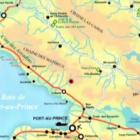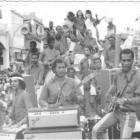ADVERTISEMENT
Photos
Forces Armées d'Haïti, FAd'H controlling protest
Here is a picture of Forces Armées d'Haïti, also known as FAD'H controlling a protest.
Haiti is a country without any regular devoted military forces. The last formal armed forces were demobilized in 1995. Haiti's first military was born in the bed of country's slave revolution. The early Haitian leaders emerged from military cadres produced by decade (1791-1804) long warfare which was fundamentally a slave revolt to expel the French out of their colony in Saint-Domingue. Haiti without a strong constitution, had been mostly ruled by force. After the expulsion of the French, the amalgamated armed force got broken down into pieces and took coercive control in every aspect of Haitian governance without any acceptable constitution. In 1987, a decree recommended the formation of a Haitian armed forces, however, that was never properly implemented till 1989 and the crude built up that came out was finally abolished in 1995. Practically, Haiti has no present external threats other than the occasional tension with its neighbor Dominican Republic over a border fixed in 1936. The presence of U.S. military in Haiti is enough to stall attack on the country.
Mary Magdalene, companion of Alexandre Petion
Here is a picture of Mary Magdalene. She was thecompanion of Haitian President Alexandre Petion.
Alexandre Pétion was a moderate mixed-race revolutionary leader. After the death of Dessalines, Alexandre Pétion was elected as the president of southern Haiti in 1807 and reelected in 1811 and fearing a lack of political power, he turned his post into President for Life in 1816. He seized the commercial lands from rich gentry and distributed that to his supporters in small plots. However, this resulted huge loss in export revenues from the agricultural commodities and the farmers became full subsistence farmers. His outlook was influenced by the ideals of French liberalism, he believed in the importance of education in human life. Today, we can see his portrait on the Haitian 500 gourdes currency.
He joined the French army to reconquer the colony, but became one of the first Haitian officers to revolt against the French. He revolted against the rule of Jean-Jacques Dessalines who played a major role in ousting the French. Dessalines was a black nationalist ruler and
Letter from Alexandre Petion 1816
Here is a letter written by Haitian President Alexandre Petion in 1816
Alexandre Sabès Pétion (April 2, 1770 -March 29. 1818) is remembered by the Haitians as one of the greatest independence leaders, a liberal ruler and the first President (1807) of the Republic of Haiti till his death. He was born as Anne-Alexandre Sabes. According to Dantes Bellegarde, a Haitian historian, "Petion", was a nickname given to him. He is also remembered by the Latin Americans (Venezuela, Colombia and other countries in South America) for his support and sanctuary offered to the Venezuelan military and political leader Simón Bolívar during his struggle for independence from Spain in 1815.
Alexandre Pétion was born in Port-au-Prince to a wealthy French and a Mulatresse Haitian mother and studied at the Military Academy in Paris, but came back to take part in the expulsion of the British (1798-99) from Saint-Domingue. He served the French colonial army before the French Revolution. Thereafter, before joining the force of mulatto general André Rigaud, he joined the revolutionary troops of Toussaint Louverture. André Rigaud had much respect for Toussaint Louverture as the leading general of the former black slaves of the North but did not want to concede power in the South to him.
Democratic Convergence named Gerard Gourgue Haiti provisional president
The relationship between Former Haitian President Jean Bertrand Aristide and law professor Gerard Gourgue was contentious. The Aristide reign was marked by the decision of the coalition o the Democratic Convergence to select Mr. Gerard Gourgue as a provisional president along side with Jean Bertrand Aristide
Democratic Convergence named Gerard Gourgue Haiti provisional president
Following the removal of then president Jean Bertrand Aristide, the special group put together to oust him, The Democratic Convergence, named a provisional president in Gerard Gourgue. the group represented almost all the political organizations in the country except that of the president, and they made Gourgue president for a two-year period following the coup against Aristide. This provisional government was given support from a number of parties including the Haitian labor confederation, the Mouvman Peyizan Papay, and the Independent Intersyndical Movement.
André Apaid, Evans Paul and Guy Philippe converging on Aristide
André Apaid, Jr. is one of the leaders of the Group of 184 which forced Jean-Bertrand Aristide from power in 2004.
Evans Paul also called K-plimo was elected mayor of Port-au-Prince in the 1990. He was one of the leaders of the Convergence Démocratique that contributed to the 2004 Haitian coup d'état which overthrew Aristide.
Guy Philippe led a group of former soldiers to take arms against President Jean Bertrand Aristide. He was given credit for the 2004 Haitian coup d'état that ousted Jean-Bertrand Aristide
Andre Apaid, Evans Paul and Guy Philippe converging on Aristide
Uniting the forces of the U.S. government, at that time the Bush administration, the elite class of Haiti, and worldwide republican institutions, The Convergence Démocratique, an amalgam of over 200 groups, worked to oppose the then President of Haiti, Jean-Bertrand Aristide. The group, led by a one-time Aristide supporter and former mayor of Port-au-Prince, Evans Paul, Andre Apaid, and Guy Philippe, would eventually get him out of power. In their campaign, they openly asked the U.S. to invade the country, get rid of the then president, and rebuild the army, which had been disbanded. The convergence was dissolved after they attained their feat following the coup that ousted Aristide.
Protester in Fort Liberte demanding industrial park Caracol electricity
There has been a Protester in Fort Liberte where the population is demanding to be connected industrial park Caracol electricity source
Surge in Violent Uprisings as Year Ends
Reports emanating from Port-au-Prince said an investigation by officials regarding a violent street demonstration near the Dominican Republic border claimed Haitian police officers went on a shooting rampage, injuring 13 people. This confirmation came from Northeast Senator Jean-Baptiste Bien-Aime.
In another incident, Fort Liberté demonstrators demanded they be provided with electrical service from the Caracol power plant at the industrial park close by.
A third incident in a Port-au-Prince neighborhood found three protestors shot by pro-government protestors.
A bloody demonstration scene in Fort Liberte on Thursday, November 28 left 13 people injured by, as yet, unknown elements. Senator Jean-Baptiste Bien-Aime, a politician in the opposition party, would have the nation know that the injuries were as a result of the police, while attempting to clear the blocked main road, firing on the protesters, while the spokesman for the National Police, Frantz Lerebours, remains cautious about disclosing what happened and how many people were wounded without more information.
Polic nan Miyami kape danse Rara lakay
Mezanmi, Gade koman Polic nan Miyami ape kale kor yo nan Ti Ayiti. Minm Polic paka kanpe gade rara sa no yo oblije souke kor-a.
Several Police Officers in Little Haiti are dancing to the sound of Rara Lakay
Polic nan Miyami kape danse Rara lakay
There is much to see, do, and experience in the community of Little Haiti. Located in Miami, this town functions as the center of the Haitian Diaspora in Florida and the U.S. Having some of the most colorful businesses, many of which focus on the arts, food, or literature, Little Haiti carries something for everyone while showcasing the best of Haitian culture. The Haiti cultural Center regularly hosts performances of dance and the theater, and restaurants throughout the area that prepare the best of Haitian cuisine.
Max Mathurin, president of the Provisional Electoral Council (CEP)
Here is a picture of Mr. Max Mathurin, president of the Provisional Electoral Council (CEP).
At the first press conference he's attended since being ill, President of the Provisional Electoral Council (CEP) Max Mathurin, addressed the restraints on the CEP budget and how this affected the organization's ability to fulfill their duty to the Departmental Electoral Offices (BED) and the Communal Electoral Offices (BEC). While still unable to pinpoint any set electoral dates, Mathurin did announce some activities pertaining to the upcoming elections. He reminded those present, however, that the country is still without a legal framework in the form of an electoral law.
Recho Pa'w, project to improve cooking funded by USAID
Here is a picture of a Recho Pa'w. This project was created to improve cooking in Haiti and funded by USAID.
The Recho Pa'w project, with a budget of nearly $9 million U.S. and funded by USAID to promote better cooking methods, was officially handed over to the Haitian population in a ceremony featuring representatives of USAID, LPG distributors and biomass stove manufacturers as well as the US Ambassador to Haiti, Pamela White. The objective of the project, which will be focused in the urban area, is to build the permanent groundwork for cost-efficient, clean cooking. The project aims to convert 300,000 families toward the use of propane and biomass stoves.
Hôpital Alma Mater, Gros Morne
Here is a picture of Hôpital Alma Mater located in the town of Gros Morne in Haiti
In Gros Morne, the Hôpital Alma Mater operates as a 50-bed hospital that gives care to about 135,000 people. A large part of its operation is the help given by volunteer workers who travel to Gros Morne. Without this voluntary aid, the hospital would find itself in dire straights as it, like so many other health care facilities in Haiti, functions with meager finances and inferior equipment. Following the 2010 earthquake, it has been struggling to adequately treat patients. There has been work to build up the capacity of the hospital since 2013 by Hospital Alma Mater and GHI.

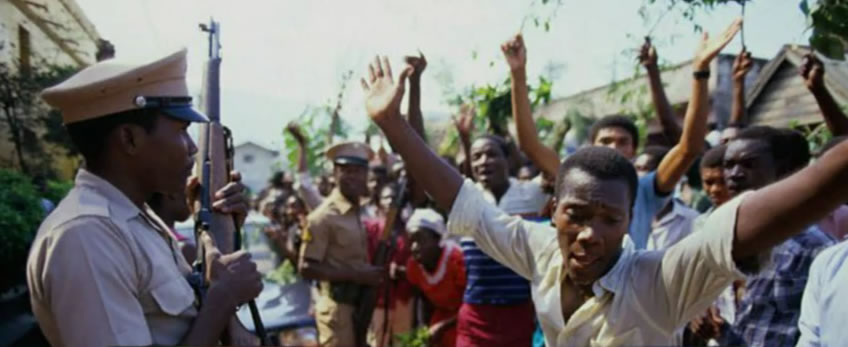
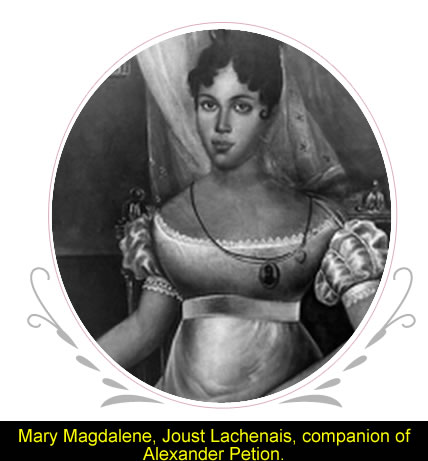
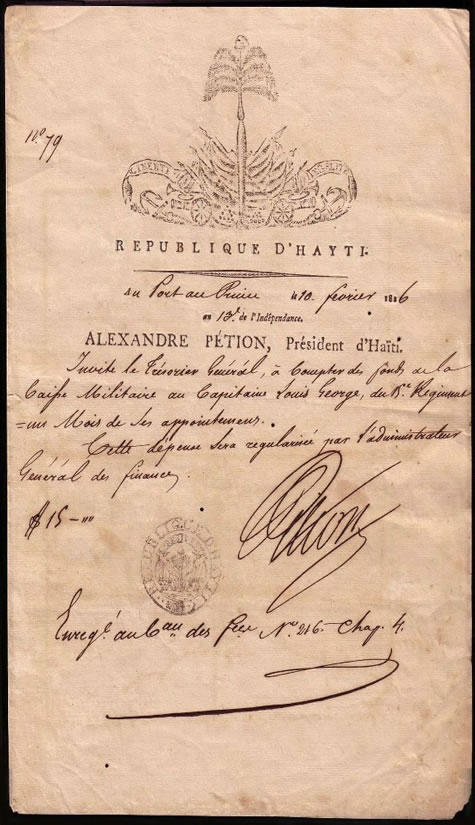
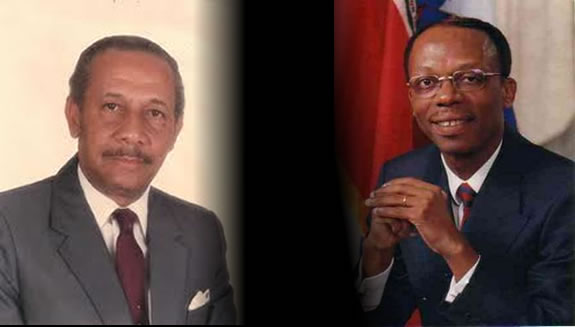

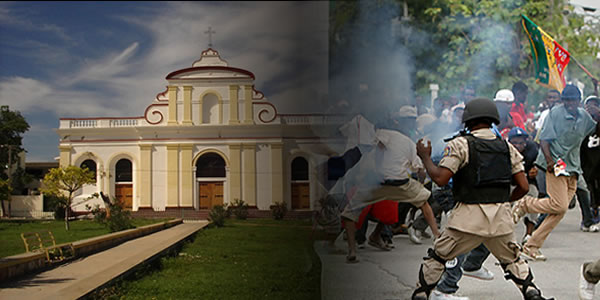

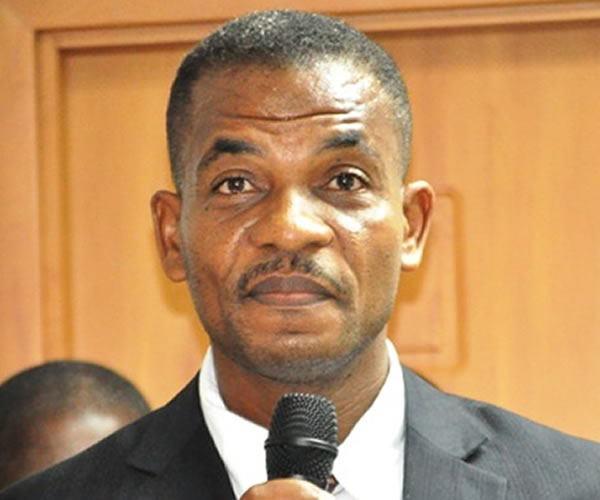
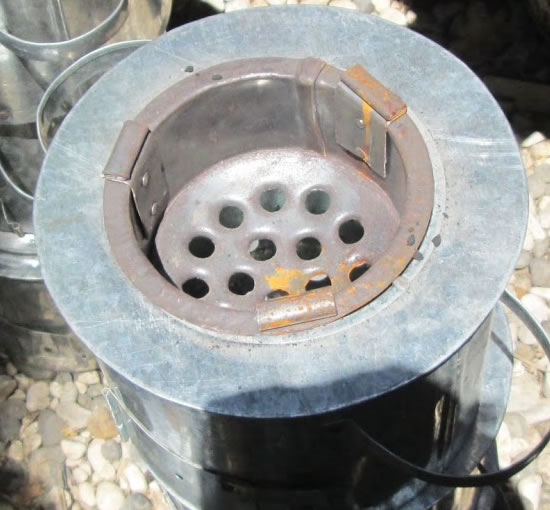
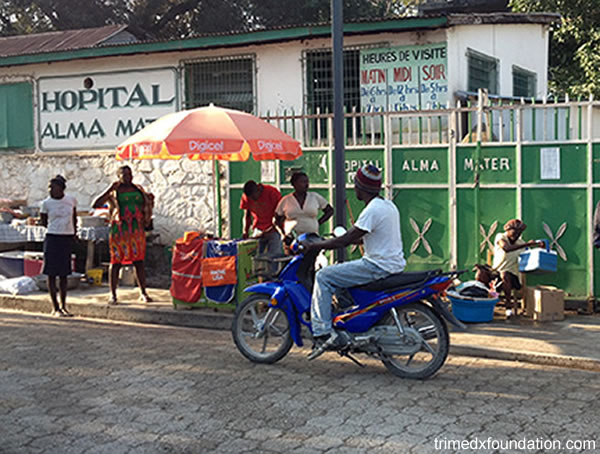
 Church Avenue Bakery Haitian Patties
Church Avenue Bakery Haitian Patties  François Nicolas Duvalier Potential Candidate for President of...
François Nicolas Duvalier Potential Candidate for President of... 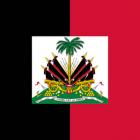 Haitian Flag Under Francois Duvalier changed in 1964 to black...
Haitian Flag Under Francois Duvalier changed in 1964 to black...  Haitiano-Japanese Naomi Osaka wins the US Open against Serena...
Haitiano-Japanese Naomi Osaka wins the US Open against Serena...  Port-au-Prince on fire over gas prices hike
Port-au-Prince on fire over gas prices hike 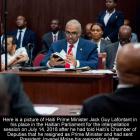 Jack Guy Lafontant resigns as Haiti Prime Minister
Jack Guy Lafontant resigns as Haiti Prime Minister  The Petro Caribe Challenge hashtag
The Petro Caribe Challenge hashtag 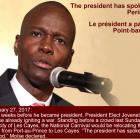 Jovenel Moise, the president has spoken. Period
Jovenel Moise, the president has spoken. Period 
